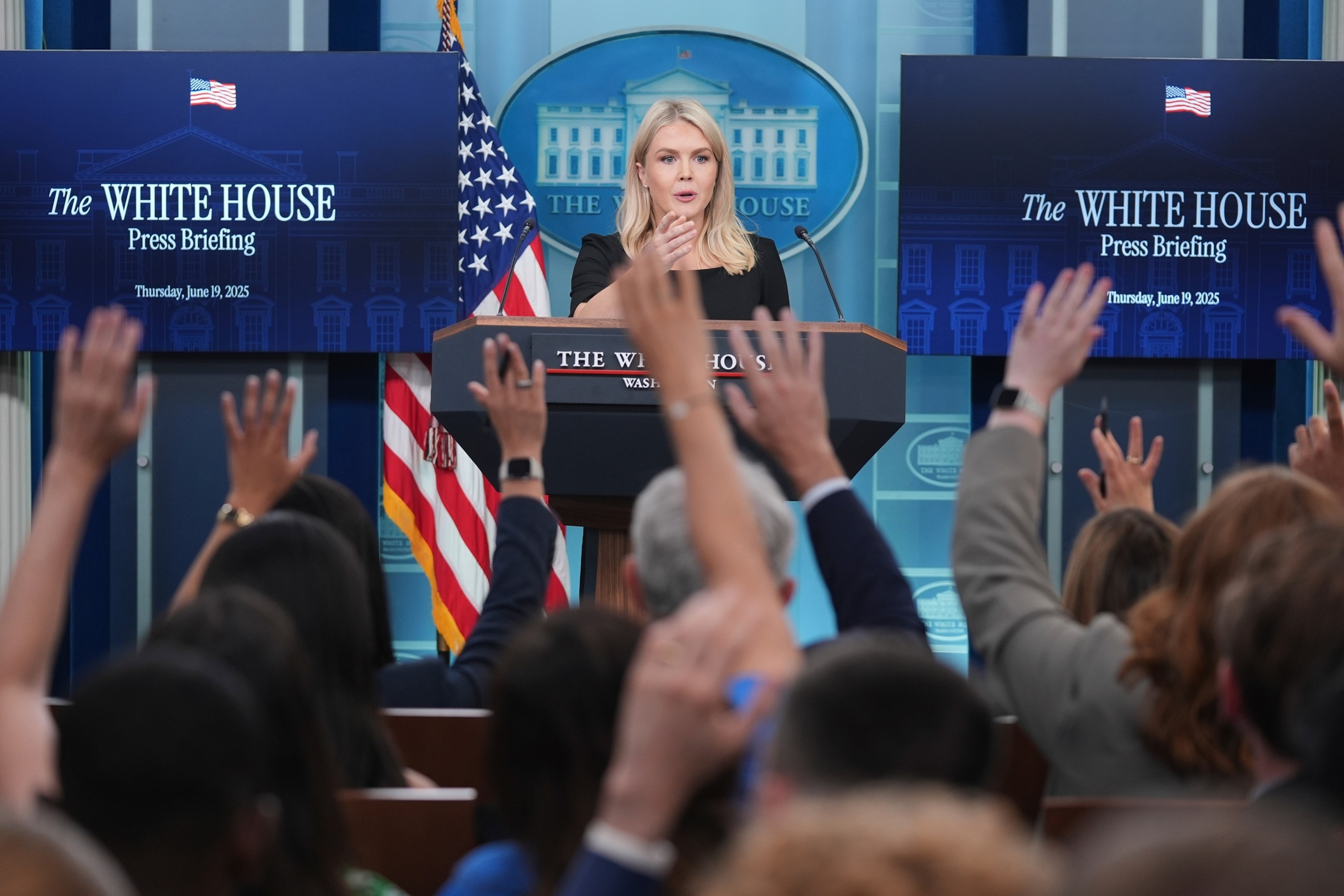On Thursday, the White House definitely declared that Iran could produce a nuclear weapon in “a couple of weeks” once it was approved by Ayatolá Ali Khamenei.
“Let’s be very clear, Iran has everything you need to achieve a nuclear weapon,” said White House Secretary, Karoline Leavitt, in her information. “All they need is a decision of the supreme leader to do that.”
“And it would take a couple of weeks to complete the production of that weapon, which, of course, would represent an existential threat not only for Israel but for the United States and for everyone,” he continued.
The close thing that will be going to develop a usable nuclear weapon has been in the center of the Israel-Iran conflict, with a continuous debate about the possible “timeline” once the nation has stored sufficient uranium enriched in the degree of weapons.
The last time that the United States gave an official Breakout timeline, it was in July 2024 when the then Secretary of the State Antony Blinken said that I would take Iran one or two weeks enriching enough uranium of 90% purity to obtain the fistible material necessary for a nuclear weapon.
“Once you are at 60 [percent enrichment]You are 90% of the road there. You are, in essence, a state of nuclear weapons threshold, in what is basically Iran, “said Secretary of State Marco Rubio in an interview last month.
But if they will produce sufficient uranium of degree of weapons, most experts estimate that they would take between several months and two years to make a deliverable nuclear eye.
In March, the national intelligence director Tulsi Gabbard testified that the intelligence community concluded that the Iranians were not “building” a nuclear bomb and that the supreme leader had not yet authorized one to be built.
Trump, when asked about Gabbard’s testimony this week, said goodbye, saying: “I don’t care what he said, I think they were very close to having one.” Gabbard insisted that she and Trump were on the same page, that Iran was “close” to obtain a weapon, and that her testimony was misunderstood.
However, the intelligence community evaluated that the enriched uranium arsenal of Iran was at its highest level and had no precedents for a state without nuclear weapons, Gabbard testified.
Decision about the attack within two weeks, says Trump
All the eyes are in what Trump will then do while Israel and Iran continue to excharge strikes, which Israel said it will intensify after an Iranian missile hit a hospital in Beersheba.
The White House said Thursday that it would make a decision on whether to take military measures against Tehran in the next two weeks.
“‘Based on the fact that there is a substantial possibility of negotiations that may or may not take place in the near future, I will make my decision whether or not to go within the next two weeks.” That is an appointment directly from all of you today, “Leavitt said.

The White House Secretary, Karoline Leavitt, speaks during an informative press session at the White House, on June 19, 2025, in Washington.
EVAN VUCCI/AP
Trump met with the advisors in the Situation Room three times this week after leaving the early G7 Summit due to tensions in the Middle East. He approved the attack plans presented to him, but he was waiting to see if they would be willing to negotiate and has not made a final decision, sources familiar with the matter to ABC News said.
It is ready for another meeting of the situation room on Friday before attending a collection of private funds that night in Bedminster, New Jersey, before returning to the White House on Saturday afternoon, where you will get more intelligence reports that night and Sunday night.
A source familiar with intelligence said that the president of the team leaders said that it does not take measures until US assets are in a better position in the region. The United States is in the process of moving the USS Ford to the Mediterranean. The source also said that Trump wanted to know if a 30,000 -pound bomb made by the United States would succeed in destroying Iran’s nuclear capabilities.
Leavitt said that Trump’s decision would be based partly on his “instincts”, since he faces different pressures from all sides, including a division in his republican base between isolationist and hawks of Israel.
“Look, the president listens to all the voices throughout the country, and makes decisions based on his instincts,” Leavitt said. “And he has always said that diplomacy is his first option.”
The chief correspondent of the White House of ABC News, Mary Bruce, asked Leavitt what made Trump believe there is a substantial negotiation possibility, but Leavitt refused to establish his thought.
“I will not go into reasoning and justification,” he said. “The president believes that, but that is his position and will make a decision in the next two weeks.”
The White House said that correspondence has continued between the United States and the Iranians, although it was not tracking whether the special envoy of the United States to the Middle East Steve Witkoff would attend conversations in Geneva between European leaders and Iranians.
Meanwhile, Israel made solid statements on Thursday saying that Iran’s supreme leader cannot continue “existing”, which causes questions about whether Israel now wants a regime change in Iran. Leavitt was asked on Thursday if the United States would get involved in such a stage.
“The president’s main priority at this time is to ensure that Iran cannot obtain a nuclear weapon and provide peace and stability in the Middle East,” Leavitt said.
The ABC News Global Affairs correspondent, Martha Raddatz, contributed to this report.






